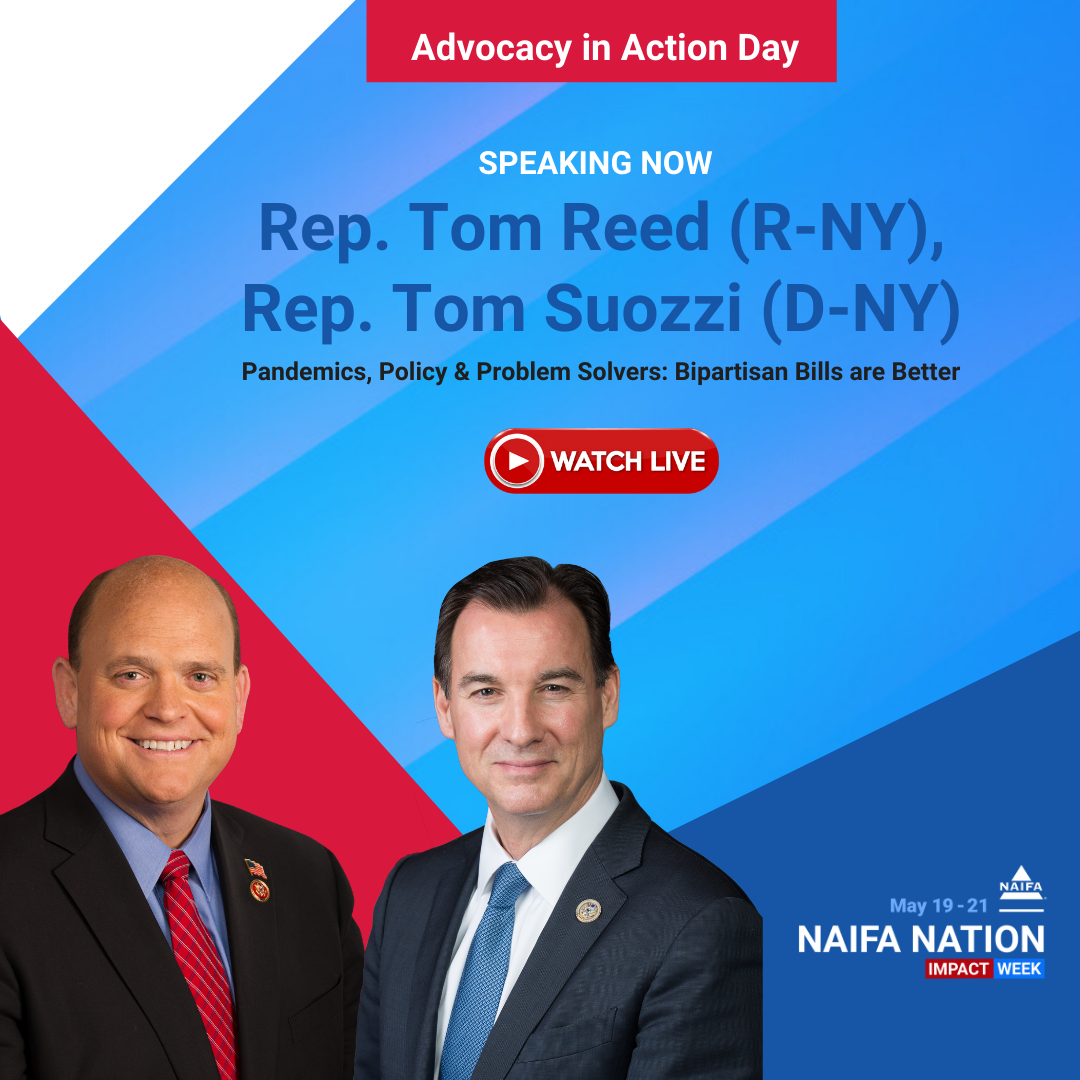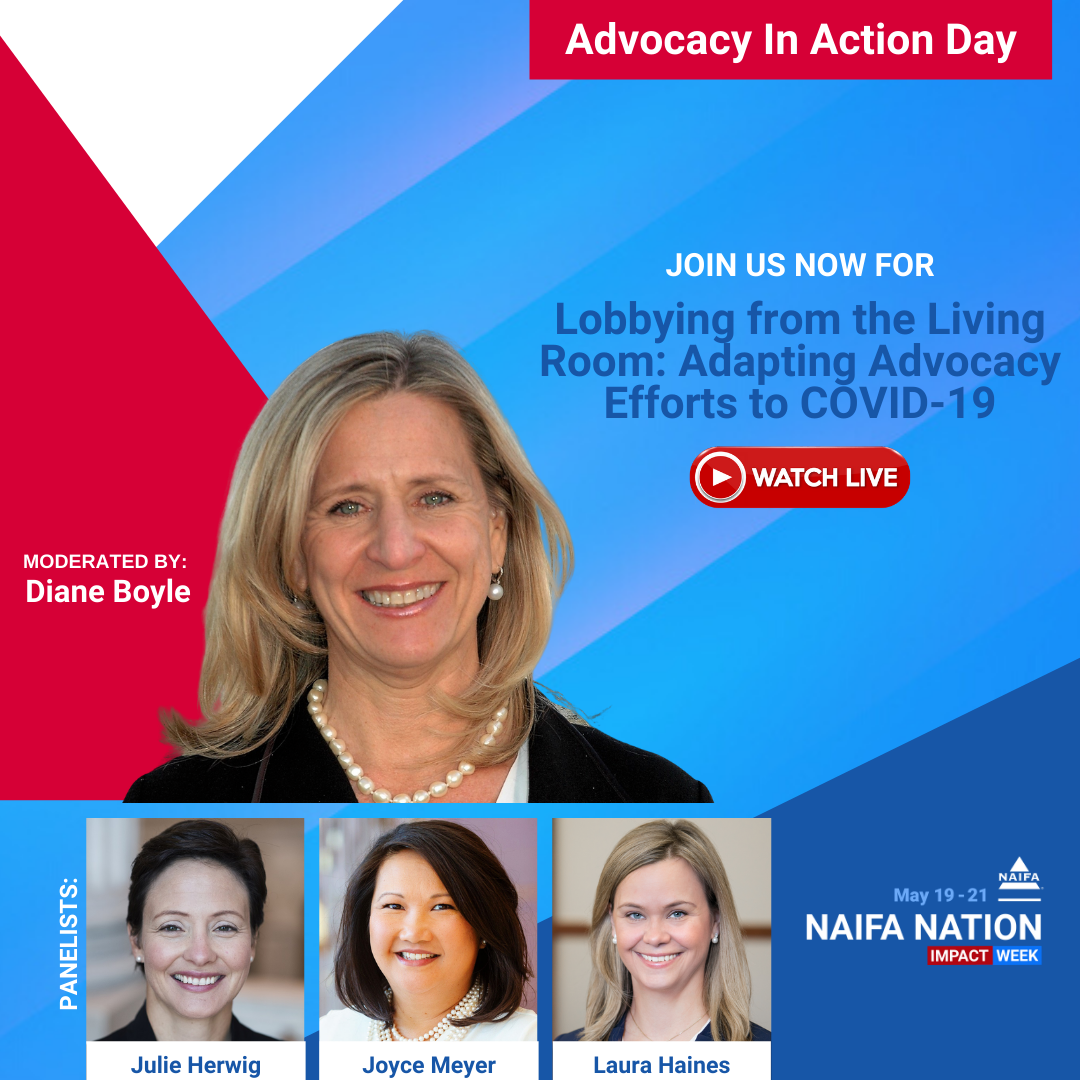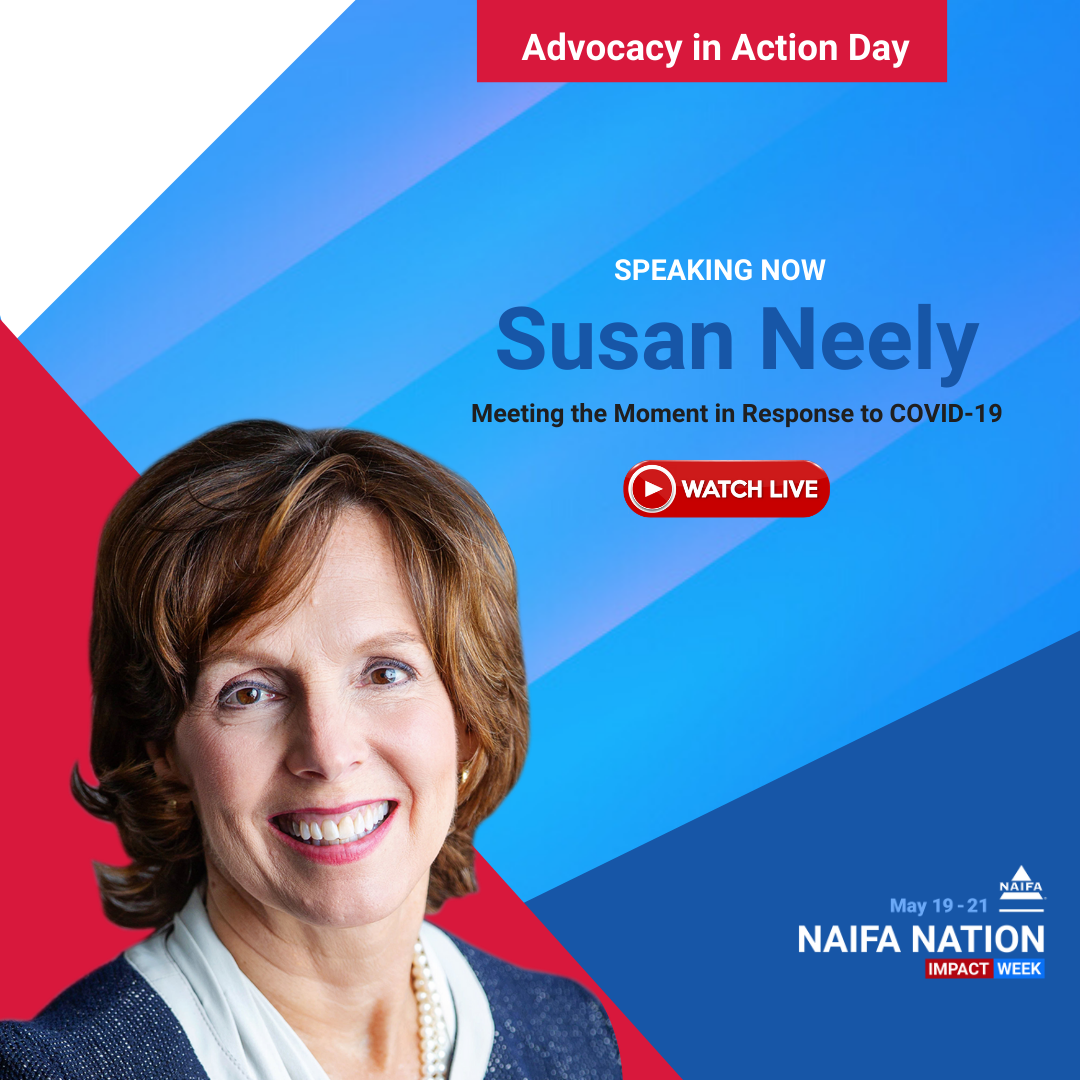Reps. Tom Reed (R – NY) and Tom Souzzi (D – NY) share a strong appreciation for the insurance and financial services industry and the importance of the products and services that agents and advisors provide. The y spoke about their work and the Problem Solvers Caucus during NAIFA’s Advocacy in Action Day.
“I know how important the industry is and it makes a lot of people’s lives better,” Souzzi said. “I didn’t appreciate it when I was younger, and it wasn’t until my 40s and early 50s until I really realized how important it is.”
The Problem Solvers Caucus
Twenty-five Democrats and 25 Republicans in Congress form the Problem Solvers Caucus and meet regularly to find common ground. Their work has been very important during the COVID-19 outbreak as Congress has put together bipartisan relief legislation and back-to-work plans.
“The Problem Solvers were so important a few weeks ago when people were really desperate for answers and people of good will who could trust each other to try and find common ground,” Souzzi said. “And I know – we all do on Problem Solvers – that that’s the only way we’re going to move forward.”
“We are the only show in town in Washington, D.C., where we get together as a bipartisan group,” Reed said. The caucus members “not only have agreed to stay in the room to find common ground, but really have developed levels of trust and friendship. And because you have that, it’s the only place I know in Washington, D.C., where we are willing to discuss things candidly, we’re willing to discuss things knowing that there’s not going to be a political ‘gotcha’ moment, and that it’s not going to turn into a campaign ad.”
The Significance of 290
The Problem Solvers worked to change House of Representatives rules to ensure that more bipartisan legislation reaches the House floor for debate and votes. The Breaking Gridlock package has at its core the rules reform known as the “consensus Calendar,” under which any legislation that gets 290 co-sponsors is guarantees an up-or-down vote on the House floor.
“It’s changed the dynamic of the House of Representatives,” Reed said. “We’ve had at least 20 different successes that have worked their way through the consensus calendar.”
The Cadillac Tax on some employer-provide health insurance plans was repealed by legislation that advanced because of the rules change.
“The bottom line is, in the old days you’d have 290 people that would agree to co-sponsor a bill and you couldn’t even get a vote on it,” Souzzi said. “And so we said we would not vote for the new Speaker – the Democrats wouldn’t vote for a Democratic Speaker and the Republicans wouldn’t vote for a Republican Speaker – unless they gave us some of our changes.”
The Problem Solvers sometimes face criticism from within their own parties or from primary challengers for their congressional seats because of their bipartisan stands.
“We have a love-hate relationship with [party] leadership,” Reed said. “Sometimes they love us because they know that we can bring the votes to the table and that we can find that common ground and that they can throw us under the bus, but at the end of the day they know it has to get done. But at other times we stand on principle and we stand up strong and we can be a thorn in their side.”
The administration sought the Problem Solvers when the need for COVID-19 relief arose, because they recognized the need for bipartisan support to get through the crisis. Though he sometimes is criticized for working with Republicans, Souzzi says, it’s the only way to get things done.
“I didn’t run for Congress to get a job,” he said. “I ran for Congress to do a job. To try and solve problems.”
Long-Term Care and COVID-19 Recovery
There is tremendous pressure to get COVID-19 recovery funding for state and local governments, Souzzi said. Funding for infrastructure could see a revival to boost the economic recovery.
Souzzi had hoped to announce federal legislation promoting long-term care this summer, but said, “I don’t believe it’s reasonable for me to expect that something will happen in this environment.”
“With long-term care, there’s a huge storm coming in our country, with 10,000 Baby Boomers turning 70 every day,” he said. “We don’t have the capacity with our nursing homes.”
“We have to really be focusing on; how do we create a model for long-term care where there is a private-sector business model that will succeed … but at the same time have a government backstop for catastrophic care.”
Reed agreed that another round of recovery or economic stimulus legislation is likely and that there is an opportunity for an infrastructure bill.
“But given this crisis, given the fact that we’re going into a presidential campaign full-throttle, it’s going to take up a lot of the oxygen in the space of D.C., and we’re going to have to wait until the first six months of the next administration for any vigorous legislation to go forward.”







